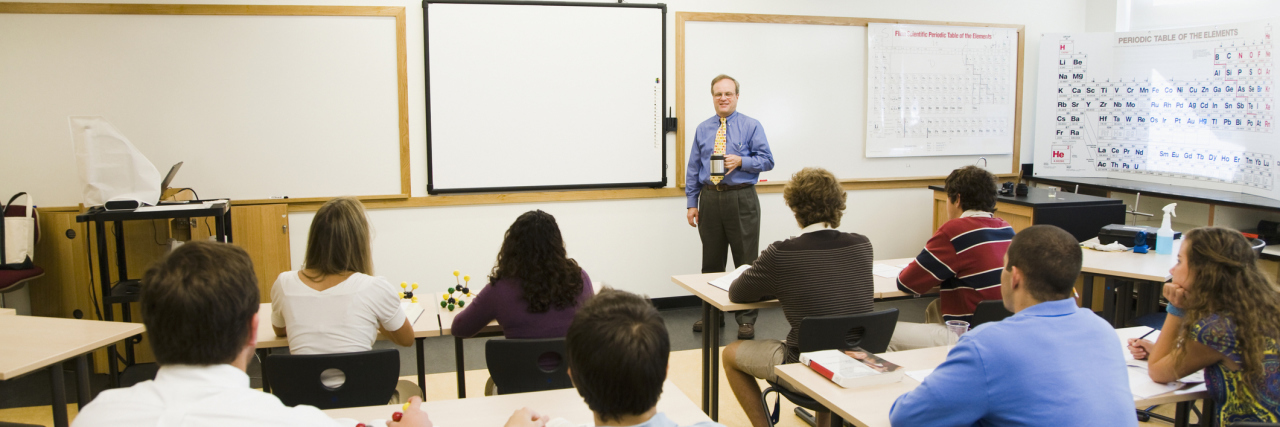There has been a lot of controversy about the Netflix series “13 Reasons Why.” Many of the conversations I’ve overheard include people saying something to the effect of, “If you ever feel that way, talk to someone.” While this is well intentioned, it probably won’t actually help someone in a difficult situation or facing a crisis.
Someone in crisis needs a lot more advice than just being told, “Talk to someone.”
I often talk to high school groups about mental illness. I always ask, “If you were in a bad situation or you had a friend who needed help, how many places can you name where you can find help?” Some schools are very good and the students can name multiple places where they can find help. Sadly most groups I ask can give me just one or two places. They have been told to talk to someone if you feel suicidal countless times, but when it comes down to it, they haven’t been taught who specifically they can talk to. In other words, telling people to talk to someone is not enough, people need to be told exactly where to find help and how to access it. It’s not just young people. A highly frustrated teacher rang me one day, and said they spent two hours trying to find a counselor. The process can be harder than people realize.
How do you really help someone?
I talk to a lot of young people with depression. There is a very simple yet effective way I can show them where to find help. Simply by Googling “depression help” and then typing in their area, teaches them practical problem-solving skills. For so many young people, this is a revelation — firstly that other people have experienced what they have experienced, but also that there is help out there. Really young children can access all sorts of terrible things on the internet, but it often doesn’t occur to people to Google something such as help for depression. Many people with depression will say there is no one who can help. There is a lot more help than people realize. For example, in my city with roughly 375,000 people, there are approximately 400 different social services, 250 plus counselors and at least 1000 medical doctors. There is a lot of help out there, but we need to teach people where it is and what it involves. I also tell people if they are in an isolated area, then many helping professionals will be willing to offer services via phone or Skype. I often find even really basic information such as a GP or a regular doctor can also help someone with a mental illness is not widely known. If money is an issue, there may be a charity or a church that will help support someone in need.
Why getting help is important.
The first step to truly helping someone, needs to be providing very specific information about where to find help. The second step is to explain what the help involves. I’ve found a lot of people won’t go to a counselor because they don’t know what it involves or how it can help. People need to be told it involves talking to someone. Help should be more than this though, because the person should give them some positive skills to help them though the tough times. I also think it is important to say to people that if you don’t want to say something, you don’t have to and you are free to leave at any time you want. We need to inform people that help actually helps. If we know someone who has been helped by seeing a counselor or helping professional then we should mention, (anonymously) how it helped this person get better. If we just say, see a counselor without explaining how effective it can be, then people are unlikely to reach out for help.
What happens when the help doesn’t help?
The final step is to talk about what to do if the help is not working.
I host a weekly radio show and in the last year I have had 30 plus guests talk about their experiences of mental illness. At the end, I often ask my guests if you had one piece of advice for someone experiencing a mental illness what would it be? There have been a multitude of answers, but one that comes up again and again is that people wished they knew they could change counselors. Sometimes there can be a personality clash, sometimes the person is best suited to someone with a different skill set and sometimes the person isn’t very good. Hopefully someone who needs help will be able to get it right first time, but if this is not successful then people need to be encouraged to try again and again until they find someone who can help.
Instead of telling someone who is having a hard time to just talk to “someone,” we need to give people much more specific advice so people can truly find the help they need.
If you or someone you know needs help, visit our suicide prevention resources page.
If you need support right now, call the National Suicide Prevention Lifeline at 1-800-273-8255 or text “START” to 741-741.
We want to hear your story. Become a Mighty contributor here.
Thinkstock photo via Purestock

